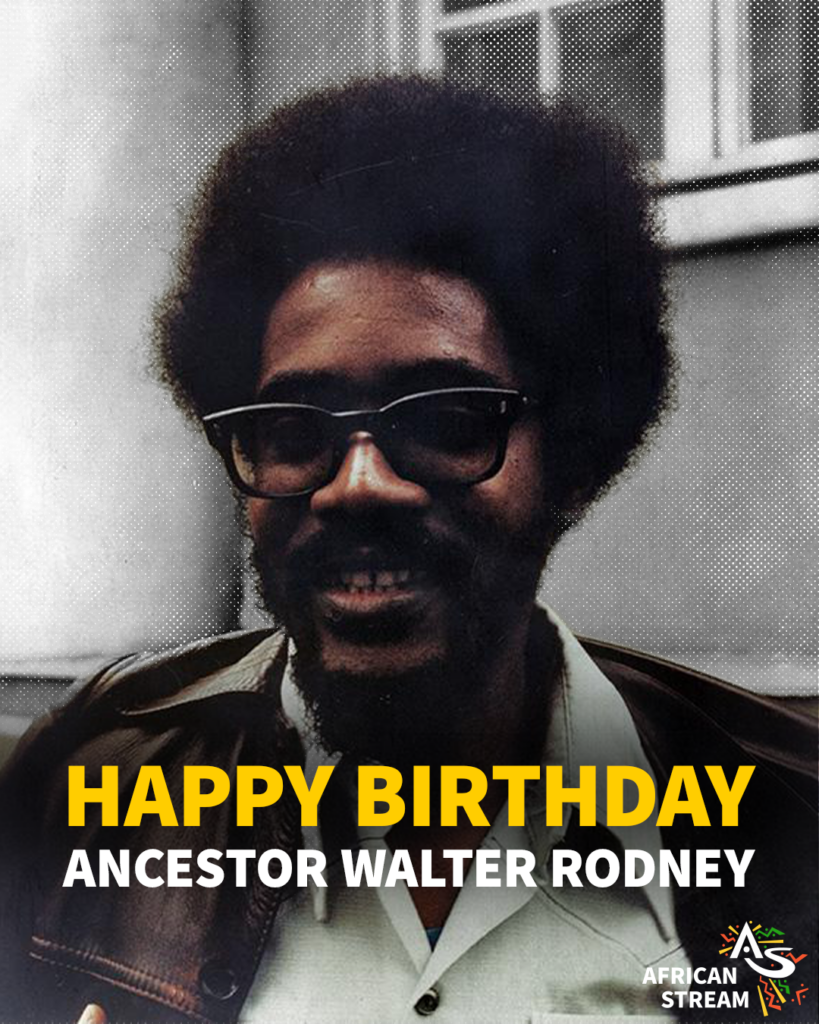Revolutionary Guyanese writer and activist Walter Rodney was born on this day in 1942. We remember the guerrilla intellectual, who left a lasting legacy on academia and the struggle for social justice.
Rodney’s intellectual journey began at university in Jamaica, where he rejected the path of a technocrat and instead focused his curiosity on Africa during its period of independence.

He earned is PhD from London’s School of Oriental and African Studies aged 24. His research challenged established historical narratives on Europe’s role in the trans-Atlantic slave trade and exposed the detrimental effects of European colonialism on Africa’s development.
Rodney’s determination to make a difference took him to Tanzania‘s Dar Es Salaam University, where, in the late ‘60s, he taught and left his mark on a generation of historians living under the leadership of Mwalimu Julius Nyerere.
Returning to Jamaica, he embraced the struggles of the marginalised and connected with students and the working poor through his teachings and community engagement. His ability to bridge the gap between intellectuals and the masses was met with government surveillance and eventual expulsion from Jamaica. This sparked widespread riots and cemented his radical legacy.
Throughout his life, Rodney remained dedicated to the cause of social justice, forging alliances with intellectuals, including Rastafarian leaders and Black-power activists. Notably, his impact extended to figures such as Ralph Gonsalves, who now serves as the prime minister of St. Vincent and the Grenadines.
After his expulsion from Jamaica, Rodney returned to Tanzania, where he played a key role in the Dar Es Salaam school of intellectual inquiry. There, he completed his magnum opus, “How Europe Underdeveloped Africa,” which continues to provoke passionate debates among historians and Pan-Africanists today.
Tragically, his life was cut short when he was killed by a car bomb in 1980, leaving behind a legacy of courage, intellectual astuteness, and a commitment to social transformation. 30,000 showed up to send him off at his funeral, illustrating how dearly he was held by the people.
Walter Rodney’s story serves as a testament to the power of ideas, the pursuit of justice, and the impact one individual can have on society. His legacy remains alive, inspiring current and future generations to challenge oppressive systems and strive for a more equitable world.
